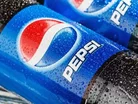Pink Pepsi anyone? PepsiCo raises a glass to gender quality with all female production line

- PepsiCo bosses have rolled out a pink production line, which is entirely staffed by women.
- The women will wear pink vests and operate pink equipment.
- The initiative aims to promote equality in the workplace and women in manufacturing.
Gender discrimination is still prevalent in the manufacturing industry, particularly in developing economies. PepsiCo has recognised this has taken a stance against such inequality by introducing an all female production line.
The company’s Vallejo Biscuit Plant in Mexico City has opened a product packaging line called “La Linea Rosa,” or “the Pink Line,” which is entirely staffed by women who wear pink vests and operate pink colored equipment.
Gustavo O’Farrill, Director of the plant said that the Pink Line was created as a part of PepsiCo Mexico’s focus on diversity and inclusion.
In 2013, the plant’s safety, human resources, production and occupational health offices began planning development and training programs to help female employees qualify for jobs that were traditionally reserved for men.
It was at this time that the idea of the Pink Line took shape to demonstrate the ability of the plant’s female associates to deliver outstanding results. Today the Pink Line serves as a developmental program, which trains and prepares women for non-traditional occupations.
The Pink Line performs regular production tasks, but its associates are also provided with specialized technical training including equipment maintenance and repair, and pallet handling.
According to O’Farrill, the job of a pallet handler is physically demanding and requires special care and skills. Apart from technical training, the program also provides courses on professional development to integrate women fully into the work environment and pave way for their career advancement at PepsiCo.
Today, 25.5 percent of PepsiCo Mexico’s associates and 41 percent of its front line employees are women. The Pink Line has emerged as an example of the innovative ways the company is adopting to improve workforce diversity to help deliver long-term and more sustainable growth for its stakeholders.
- Unilever: Global Plastics Treaty Needs Rules, not GuidanceSustainability & ESG
- Top 10: Manufacturing Leaders In North AmericaProduction & Operations
- PepsiCo: Strategic End-to-End TransformationProcurement & Supply Chain
- PepsiCo Invests US$257mn in Food Manufacturing Plant, PolandLean Manufacturing

